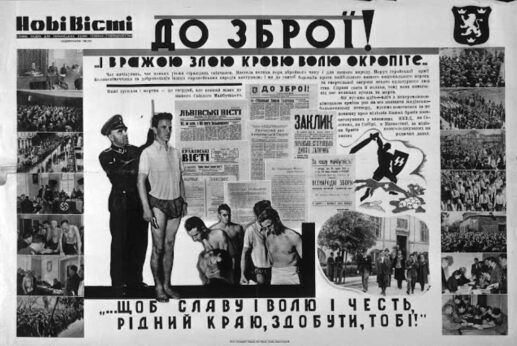
LONDON—Former SS soldier Yaroslav Hunka, whose standing ovation in the Canadian parliament scandalized the world this week, was given refuge in Britain after World War II, the Morning Star can reveal.
Despite having served in the Galicia Division of the Waffen-SS, a unit associated with massacres of Jews, Poles, and other civilians during the war, Hunka was allowed to settle in Britain after the fall of Hitler’s dictatorship.
He emigrated to Canada in 1954 and was presented to that country’s House of Commons as a hero last week, receiving an enthusiastic reception from, among others, Canadian Prime Minister Justin Trudeau and visiting Ukrainian President Volodymyr Zelensky.
Commons Speaker Anthony Rota was forced to resign amid a firestorm of global protest once Hunka’s Nazi-aligned past had been revealed. The Polish government has pledged to seek his extradition.
During his time in Britain, Hunka worked as an aircraft fitter, lived in Northamptonshire, and was an active member of the Association of Ukrainians in Great Britain (AUGB).
He was one of many Ukrainian Waffen-SS veterans allowed to live in Britain after the war. The British government decided to regard them as “stateless,” meaning that they could not be returned to face justice in the countries in which their atrocities had been committed.
There were so many anti-Soviet Ukrainian ex-soldiers living in Britain that a separate organization, the Association of Ukrainian Former Combatants in Great Britain (AUFC), was formed in London on July 30, 1949.

At its peak, the AUFC had 5,800 members, of which an estimated 84% had served in the Waffen-SS Galicia Division. The AUFC no longer appears to function.
Responding to the Star’s investigation, a spokeswoman for the AUGB stressed that Hunka and those like him “were allowed by the British government to come to Britain. He was allowed in legally.
“People use the word ‘Nazi’,” she added, asking: “What is behind that? At that time, people in western Ukraine were against the communist regime.”
When asked about the Galicia Division’s record of slaughter of civilians, the spokeswoman responded: “It doesn’t mean that they all did that.”
Other Ukrainian Nazi fighters may still be at large in Britain.
Last year, the Manchester Evening News interviewed a 98-year-old Ukrainian named Iwan Kluka, who boasted of having “fought against Stalin’s Red Army.” The newspaper deleted the article online after outraged readers pointed out that Kluka had clearly fought alongside the Nazi invaders from Germany.
Morning Star










